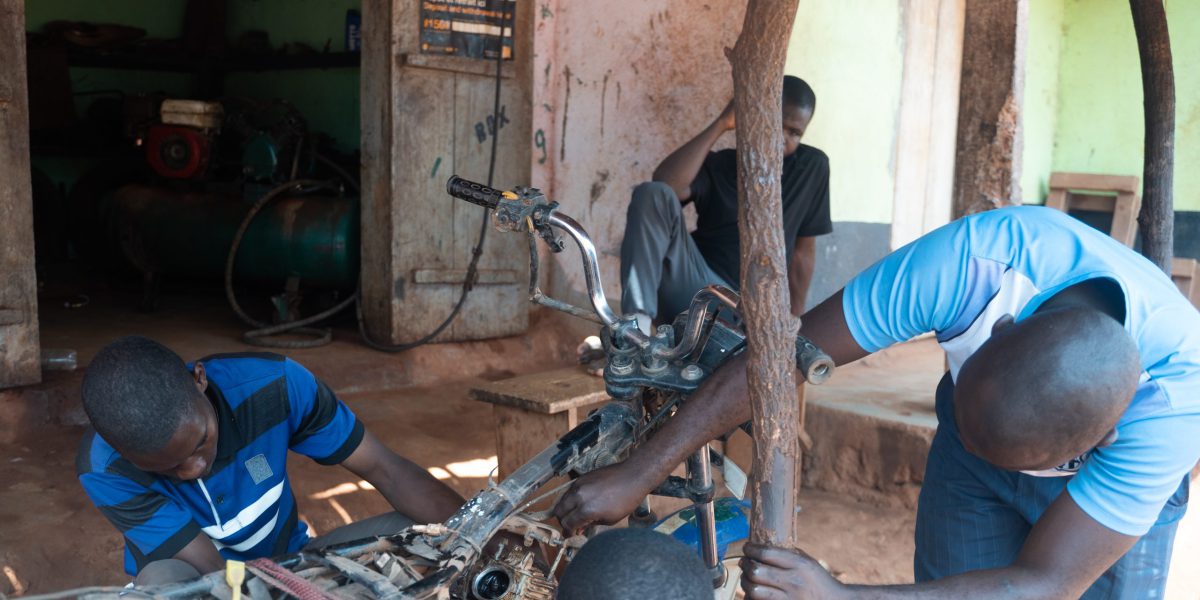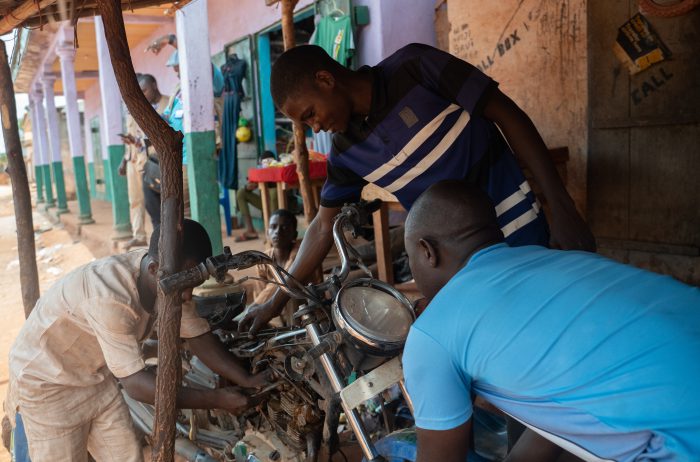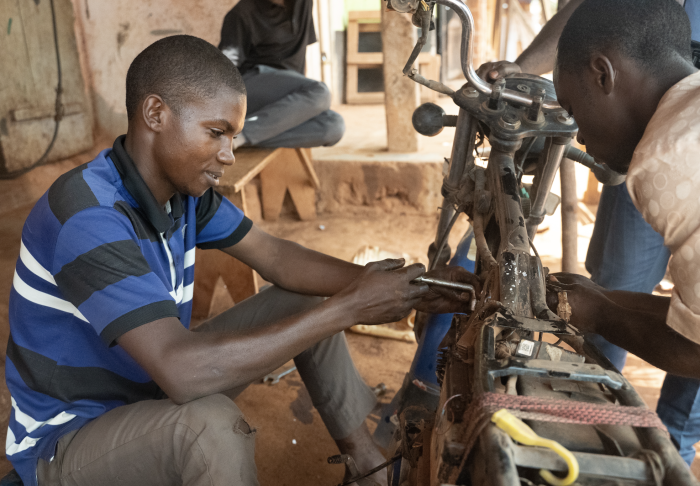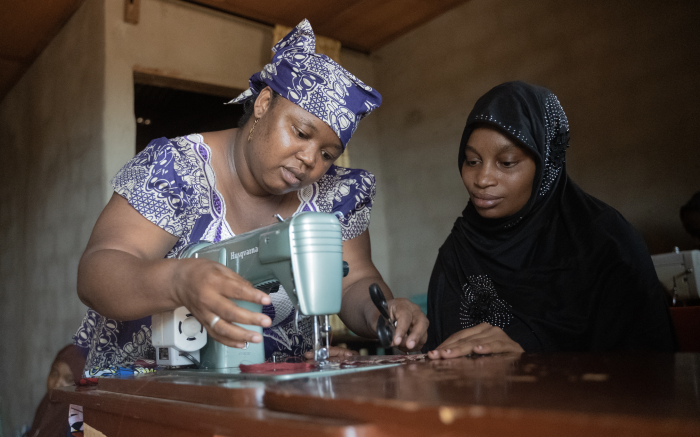Change Makers in Cameroon: A motorcycle mechanic and a seamstress open their doors to refugees
06 June 2024

Between the Lake Chad Basin conflict, the Northwest and Southwest conflict, and the Central African Republic (CAR) crisis, people in Cameroon are experiencing the impacts of three major, complex and protracted humanitarian crises that have not only contributed to the need for aid but the growing number of displaced people.
 The United Nations Office for the Coordination of Humanitarian Affairs (OCHA) reports that, as of July 2023, an estimated 4.7 million people across the country were in need of humanitarian assistance.
The United Nations Office for the Coordination of Humanitarian Affairs (OCHA) reports that, as of July 2023, an estimated 4.7 million people across the country were in need of humanitarian assistance.
JRS works in several locations in Cameroon to support refugees and host communities through psychosocial support, community-based preschool centers, women’s empowerment programs, and vocational trainings.
The vocational training program is a particularly great source of empowerment for young refugees, connecting them with the social, professional, and economic network in their host community.
Refugees who participate in the vocational training program receive starter kits with the tools and materials they need for their trade. They can choose to specialize in areas including hairdressing, mechanics, auto-repair, catering, baking, and sewing.
Students also receive rent support for the first three months of their vocational training. To date, nearly 600 graduates of the vocations program have successfully entered the labor market in Cameroon.
Sali Djingui is the 36-year-old owner of a motorcycle shop in Eastern Cameroon. He employs refugees from JRS’s vocational program who specialized in mechanics and auto-repair.
He said that once JRS explained the doors they were trying to open for refugees, he did not hesitate to get involved. “When I saw that they were young people who truly wanted to learn and develop in this profession, I didn’t hesitate to accept,” Sali said.
The young men who work with Sali come to the shop six days a week. “We only rest on Sundays,” Sali said. “They are young men who aspire to have a future, and it fills me with pride to hear them say that.”
One such mechanic, Mamadou, spoke to the importance of careers for refugees and how the opportunity to work at Sali’s shop has changed his life.
“The support that JRS provides us to sustain my family is important,” he said. “There are many children at home that I must take care of. My father is old and no longer has the strength, that is why finding a job that allows me to do so is crucial for me.” 
“Thanks to this training, they will have a job for life,” Sali said. “Regardless of where they live, they will only need to the right materials to work with.”
In Kete, Cameroon, Fatimatou’s dedication extends beyond mere instruction; she fosters an environment where young women can develop their skills and self-confidence. Her approach ensures that these girls not only learn a trade but also understand the value of independence and self-sufficiency. Fatimatou often shares her own experiences and challenges, inspiring her students to overcome obstacles and seize opportunities.
Several of her students shared how learning from Fatimatou has impacted their careers, lives, and self-esteem.
 One young woman, Aminatou, expressed her gratitude for the training she received. “This is very important to me because I want to feel capable. I want to know that I can take care of myself, my family, and earn money to support myself. Training is essential.”
One young woman, Aminatou, expressed her gratitude for the training she received. “This is very important to me because I want to feel capable. I want to know that I can take care of myself, my family, and earn money to support myself. Training is essential.”
Another student added, “learning to make my own clothes has changed my life; I feel self-sufficient. Before, I was a housewife. My life has changed since I started going out to work every day to earn a living.”
These testimonies highlight the transformative power of vocational training programs. They not only equip individuals with practical skills but also instill a sense of dignity and self-worth. For many refugees and local community members, such opportunities are lifelines that pave the way for a better future.



